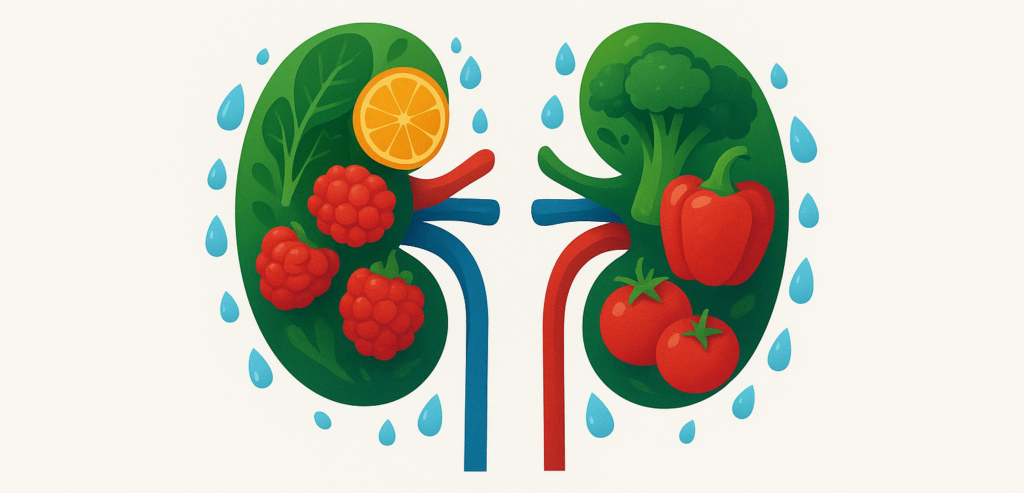Kidney stones are often thought of as a sudden, painful surprise. However, their formation begins long before symptoms appear, and much of it is influenced by daily food and lifestyle choices. The kidneys are natural filters of the body. They maintain the balance of minerals, salts, and fluids, and remove waste products into urine. When certain minerals accumulate in high concentrations, crystals begin to form. Over time, these crystals grow into stones.
Although genetics and medical conditions can play a role, diet remains one of the most powerful, yet overlooked, factors in kidney stone prevention. Many people assume stones are only caused by calcium, but this is a misconception. Stones form due to a combination of elements such as oxalates, uric acid, sodium, and lack of hydration. Understanding how these interact can significantly reduce the risk.
One of the most common dietary triggers is excess salt. High sodium intake forces the kidneys to retain more calcium in the urine. When calcium levels increase, they join with oxalates or phosphate and turn into crystals. Packaged chips, pickles, restaurant meals, instant noodles, and processed snacks contain large amounts of hidden sodium. Reducing these foods helps decrease the workload on the kidneys.
Hydration is another major factor. Dehydration leads to concentrated urine, which creates the ideal environment for crystal formation. In regions with hot climates, fluid loss is faster, and yet many people do not drink enough water. A minimum of two to three litres of water a day helps dilute minerals and flush the urinary system. Adding lemon or citrus fruits provides citrate, a natural substance that prevents stone growth.
Oxalate-rich foods are healthy but can cause problems when eaten in excess. Spinach, beets, nuts, tea, and dark chocolates are common sources. Oxalate binds with calcium to form stones. This does not mean they need to be avoided entirely; pairing them with calcium-containing foods like yogurt can balance the effects.
Animal protein, particularly red meat and seafood, increases uric acid in the body. High uric acid levels can lead to another type of stone. People who follow high-protein diets for fitness or weight loss are often unaware of this risk. Including more plant-based proteins such as lentils and beans is safer for kidney function.
Sugary beverages, especially cola drinks, make urine more acidic and trigger stone formation. Replacing sodas with water, coconut water, or natural juices supports kidney health.
Small lifestyle changes make a large difference. Maintaining hydration, lowering salt intake, balancing protein sources, and reducing excessive oxalate can protect the kidneys silently. For individuals already experiencing symptoms such as flank pain, burning urination, or blood in urine, early consultation prevents complications.
Diet is not just a supporting factor; it is one of the strongest defences against kidney stones. Understanding what goes into the body is the hidden half of kidney health that determines whether stones form or stay away.

